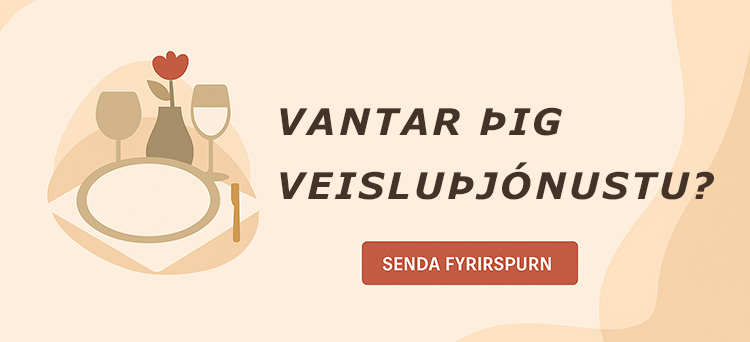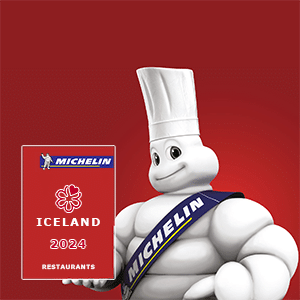Lifid
EU ministers set for wine reform showdown
Plans for radical reform of Europes ailing wine sector will be debated openly by EU member states for the first time Tuesday, with opposing blocs already emerging.
Agriculture ministers from the 25 EU members will tentatively discuss ways of re-launching EU wines on the home and world market.
The European Commission in June called for deep-rooted reform of Europe’s wine sector, which has struggled to cope with falling consumption in the EU, overproduction and rising competition from New World wine producers.
Debate on the shape and extent of that reform is likely to be fierce, however.
The Commission has proposed to rip up 400,000 hectares of EU vines to drain the bloc’s 1.5bn-litre wine lake. It also said it wanted to stop paying to distil wines that won’t sell into undrinkable, industrial alcohol.
Nearly half the EU annual wine budget, around 500m, is spent on this every year.
France’s agriculture minister, Dominique Bussereau, has already publicly denounced the Commission for proposing such measures without offering a credible alternative.
This reform lacks the ambition needed in the sector, said Bussereau, within hours of the Commission’s announcement. If changes to the common market for wine are necessary, several options put forward by the Commission can only be rejected by France.
Standing broadly with France are likely to be Spain, Portugal and Italy creating a powerful alliance of big wine-producing nations.
These four countries signed a memorandum earlier in the year calling, amongst other things, for a continuation of distillation subsidies, a greater focus on restructuring vineyards rather than ripping up vines, and the maintenance of the 1.2bn yearly EU wine budget.
On the other side of the line is likely to be the UK, which last week welcomed the Commission’s argument for far reaching reform.
Some smaller EU members may also move against the alliance of big wine producers.
Dusan Brejc, managing director of the Commercial Union for Viticulture and Wine of Slovenia, told BeverageDaily.com: A more pro-active approach is necessary. Measures like distillation obviously do not bring any solution to the EU wine industry. The only way to go on and upward is to be consumer-driven.
Slovenia’s wine area is roughly similar to that of France’s Bordeaux region. Brejc suggested those who created Europe’s wine lake should take responsibility for draining it. Slovenia does not contribute to the wine surplus, we do not use distillation funds, so we do not expect to lose any acres of vineyard.
Some agreement may be found between member states on the need to change what agriculture commissioner Mariann Fischer Boel called over-complex rules [that] hold back our producers and confuse our consumers.
Both the French government and French wine unions have said the country’s wine producers must do more to seduce’ new consumers in growing markets.
The Commission, as part of its proposals, said it wanted to establish two distinct categories of wine: those with protected origin status and those without.
Labelling rules would be simplified, however, to allow wines without protected origin status to put the grape variety on their labels for the first time; a marketing tactic that has already worked well for the New World.
Boel has promised to keep the EU wine budget at 1.2bn, roughly three per cent of the EU’s Common Agricultural Policy (CAP) spend, but spend it more wisely.
The Commission has made no secret of its support for fundamental wine reform, although has still laid out three other options for member states to discuss. These are maintaining the status quo, complete market deregulation and reform along CAP reform lines.
Legislative proposals are expected by the end of the year.
Source: foodanddrinkeurope.com

-
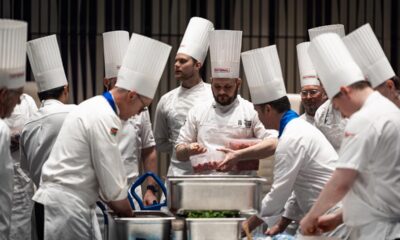
 Viðtöl, örfréttir & frumraun2 dagar síðan
Viðtöl, örfréttir & frumraun2 dagar síðanMyndaveisla frá hátíðarkvöldverði Klúbbs Matreiðslumeistara 2026
-
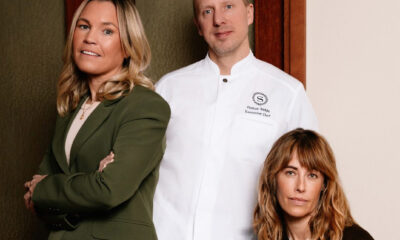
 Nýtt bakarí, veitingahús, fisk- og kjötbúð og hótel4 dagar síðan
Nýtt bakarí, veitingahús, fisk- og kjötbúð og hótel4 dagar síðanNý matreiðslustefna á Sheraton – Mr. Bronck opnar í mars
-

 Frétt2 dagar síðan
Frétt2 dagar síðanTilkynning frá Suðurnesjabæ vegna umfjöllunar um Sjávarsetrið
-

 Keppni1 dagur síðan
Keppni1 dagur síðanFreyja Þórisdóttir stóð uppi sem sigurvegari í keppninni um Bláa Safírinn – Myndir og vídeó
-

 Viðtöl, örfréttir & frumraun3 dagar síðan
Viðtöl, örfréttir & frumraun3 dagar síðanSjónvarpskokkurinn James Martin tapar í vörumerkjadeilu
-

 Viðtöl, örfréttir & frumraun4 dagar síðan
Viðtöl, örfréttir & frumraun4 dagar síðanStóra veislusýningin í Múlabergi
-

 Frétt5 dagar síðan
Frétt5 dagar síðanSkráning opin í Barlady 2026 – Tækifæri fyrir framúrskarandi barþjóna
-
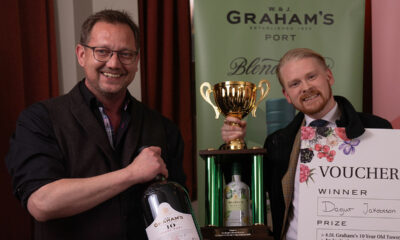
 Keppni1 dagur síðan
Keppni1 dagur síðanGraham’s Blend Series snýr aftur stærri og metnaðarfyllri en áður


